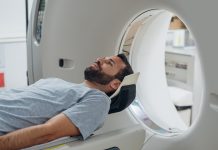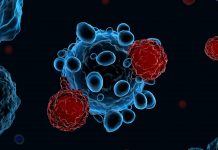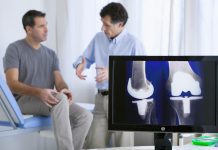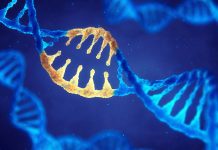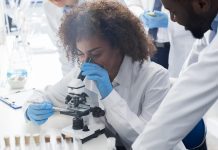Health Research Related News
Scientists explain emotional ‘blunting’ caused by SSRIs
The University of Cambridge scientists have discovered why selective serotonin reuptake inhibitors (SSRIs) cause emotional ‘blunting’.
In a new study, scientists have found out why...
Researchers identify the mechanism behind muscular atrophy
Muscular atrophy is caused by the fragmentation and elongation of mitochondria, according to researchers from the University of Barcelona.
This fragmentation and elongation lead to...
Understanding malnutrition in adults
Sarah Coe, Nutrition Scientist at the British Nutrition Foundation shares some of the key risk factors and warning signs for malnutrition in adults.
Good nutrition...
The effects of gestational diabetes mellitus on children’s neurodevelopment
Gestational diabetes mellitus can have negative effects on the neurodevelopment of two-year-old children, according to the University of Turku.
Despite the negative effects of gestational...
Nitrites in food additives can increase the risk of type 2 diabetes
A new study has found an association between exposure to nitrites and nitrates in food additives and the risk of type 2 diabetes.
Nitrites and...
Impact of lifestyle-related mortality on trends in life expectancy
Following research gathered during the Future Mortality project, Professor Fanny Janssen discusses the value of understanding the impact of past and anticipated future trends...
Using CT scans in treatment for high blood pressure
A new type of CT scan, that can light up tiny nodules in a hormone gland, has been identified as a possible treatment for...
Why do some patients remain aware under anaesthesia?
Researchers have found structures in the brain that can identify a predisposition to accidental awareness under anaesthesia in some patients.
The findings, made by neuroscientists...
Adrenal insufficiency can be detected through saliva tests
A new study from the University of Sheffield has found that using saliva, instead of blood, to test for adrenal insufficiency significantly improves patient...
Researchers identify ceramides as a hallmark of ageing
A study has found that ceramides, a class of fat molecules called sphingolipids, start to accumulate in muscle during ageing, impairing function.
Researchers from the...
A new biomarker can measure CAR-T cell therapy response
Researchers have discovered a potent biomarker for clinical responses to CAR-T cell therapy that could improve lymphoma treatment.
The findings from MedUni Vienna could provide...
Improving access to antimicrobial diagnostics
We discuss access and barriers to antimicrobial diagnostics with researchers from the London School of Hygiene & Tropical Medicine
Antimicrobial resistance (AMR) is a natural...
Older designs for knee replacements are as effective as new models
Older designs for knee replacements are equally as effective as newer models, according to new research from the Norfolk and Norwich University Hospital and...
Understanding the neuronal identity behind Weiss-Kruszka syndrome
Researchers from the Austrian Academy of Sciences and the University of Southern California have uncovered the molecular mechanism behind Weiss-Kruszka syndrome.
Weiss-Kruszka syndrome is a...
A new cure for dystonia is under development
A research team in Korea have made significant steps towards finding a cure for dystonia, offering hope to thousands of musicians.
Musicians’ dystonia affects 1-3%...
Personalising brachytherapy for better results against cervical cancer
A study from MedUni Vienna and Vienna General Hospital has demonstrated the benefits of a targeted approach in brachytherapy to treat cervical cancer.
Researchers from...
Perseverant bacteria are weakening antibiotic treatment
Bacterial perseverance is a new phenomenon that could help explain how bacteria are able to adapt to survive antibiotic treatment.
A team of researchers from...
Understanding how exercise affects insulin production
Findings from an investigation into insulin production in fruit flies may provide answers on the hormone’s role in the human body.
Insulin is an essential...
AI is being used to detect colon cancer in Lynch syndrome patients
Artificial Intelligence (AI) is now being used to check for colorectal cancer in people with Lynch syndrome, who are more likely to have a...
The University of Glasgow to receive £1.7m funding to explore the causes of cancer
Scientists are set to receive £1.7 million from Cancer Research UK to investigate the root causes of cancer and how to improve treatments.
Cancer is...









